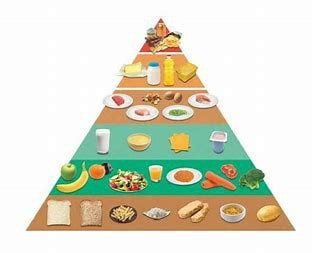- Consequences of Vitamin A Deficiency on Periodontal Disease
Vitamin A is essential for oral health. A deficiency can lead to various oral issues. One common problem is dry mouth, a condition where saliva glands do not produce enough saliva, reducing the mouth’s ability to defend against bacteria. This can lead to bacterial overgrowth, resulting in gingivitis, swollen gums, and other dental issues like cavities.
A primary function of vitamin A is to maintain the health of epithelial cells. Its deficiency can cause damage to the skin and mucous membranes, leading to degenerative changes in epithelial layers, which decreases the barrier against foreign substances. Vitamin A deficiency can cause deep periodontal pockets, thickened epithelial adhesion, and delayed healing in gum tissues.
- Consequences of Vitamin D Deficiency on Periodontal Disease
Vitamin D is crucial for oral health as it helps the body absorb and utilize calcium and phosphorus, essential minerals for the development and maintenance of teeth and bones. A deficiency in vitamin D can prevent adequate absorption of these minerals, leading to weakened dental and bone structures, which can result in tooth loss and gum disease.
Vitamin D deficiency can cause osteoporosis in the jawbone, reduce the width of the periodontal ligament, lead to cementum resorption, and hinder alveolar bone growth. It can also increase fibroblast proliferation, replacing cortical bone and trabecular bone.
Additionally, vitamin D plays an important role in supporting the immune system, which is vital for fighting pathogens, including bacteria and viruses. A weakened immune system can make the body more susceptible to oral diseases like gingivitis and swollen gums.
- Consequences of Vitamin E Deficiency on Periodontal Disease
Vitamin E is a vital antioxidant for oral health. It helps protect cells from damage caused by free radicals, thereby reducing gingival inflammation and other oral health issues. A deficiency in vitamin E means there is insufficient antioxidant protection for cells, which can lead to gingivitis, swollen gums, and other oral health problems. Furthermore, a lack of vitamin E can impair the mouth’s natural defenses, allowing harmful bacteria to proliferate.
- Food Sources of Vitamins A, D, and E
4.1. Vitamin A:
- Foods containing vitamin A in the form of beta-carotene: green vegetables like kale, carrots, tomatoes, pumpkins, beets, sweet potatoes, spinach, and herbs.
- Foods containing vitamin A in the form of retinol: salmon, liver (goose and beef), full-fat dairy, and eggs.
4.2. Vitamin D:
- Sun Exposure: Sunlight is a natural source of vitamin D. The duration of exposure depends on age, skin type, location, and weather. However, it’s advisable to avoid sun exposure during peak hours (10 AM to 4 PM) to prevent skin damage.
- Foods containing vitamin D: fatty fish such as salmon, mackerel, and sardines, fortified milk, and eggs.
4.3. Vitamin E:
- Foods rich in vitamin E: walnuts, sunflower seeds, olive oil, soybean oil, canola oil, and antioxidant-rich fruits like berries, hazelnuts, pomegranates, oranges, grapes, and mangoes.
It’s important to remember that supplementation of vitamins A, D, and E should only be done under the guidance of a doctor or nutritionist to ensure adequate intake and avoid potential side effects.

- Conclusion
In summary, vitamins A, D, and E are essential nutrients for oral health. Deficiencies in these vitamins can lead to various issues, including gingivitis, swollen gums, cellular damage, and other oral health problems.
To ensure adequate intake of these vitamins, it is important to include them in your diet through nutrient-rich foods. However, supplementation of vitamins A, D, and E should only be done under the guidance of a doctor or nutritionist to ensure that the body receives the necessary amounts and to avoid potential side effects.
Therefore, maintaining a balanced diet rich in essential nutrients is crucial for protecting oral health and minimizing the risk of dental diseases. Along with regular dental care and consistent oral hygiene practices, you can keep your mouth healthy and prevent oral health issues.





